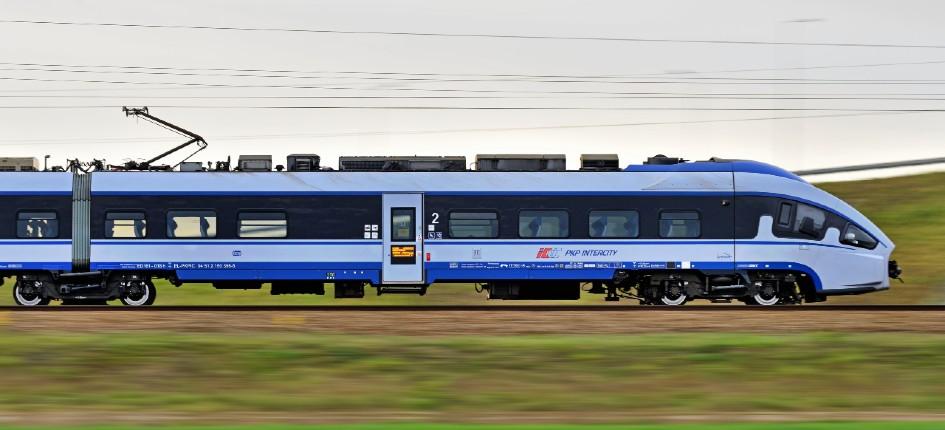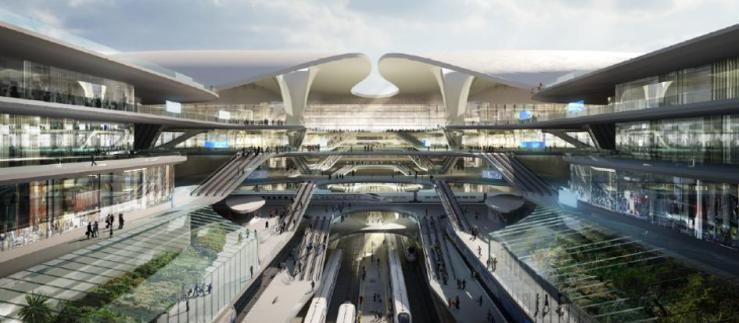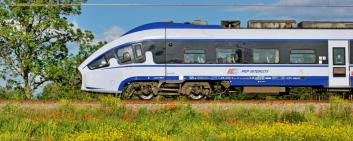FenIKS, CEF, KPO and Eastern Poland: The growing transport needs of rapidly developing economy, inevitable energy transformation, and the planned construction of a central airport mega-hub are only some of the huge challenges for the Polish railway system in the coming years. Until 2027, the expected EU sources of funds for the implementation of highly-needed railway infrastructure investments in Poland are:
- the FEnIKS program (European Funds for Infrastructure, Climate and Environment 2021-2027; a EU program to replace the OPI&E),
- the Connecting Europe Facility - CEF,
- European Funds for Eastern Poland 2021-2027,
- The National Recovery and Resilience Plan.
In total, it is estimated that approx. EUR 7-10 billion from the EU funds will be available for railway infrastructure projects in Poland. The government program called Kolej + should also be added. It’s EUR 1.2 billion from the state and about EUR 214 million from the regional governments budgets. This means an annual average of EUR 1.7-2.1 billion for Polish railway investments, which in total gives the level of expenses similar to the years of the previous EU budgetary perspective.
The implementation of the railway component of the Central Communication Port (CPK) project will also be an important element of railway infrastructure modernization and construction plans for the near future. In the years 2024-2027, about 1800 km of new railway lines are to be built (vast majority of them – in high-speed rail standard). Cautious estimates put it at a cost of around EUR 5.3-6.4 billion. CPK railway component is the first complex program for construction of new railway lines in Poland in over 30 years.
PKP PLK: main investment directions
When developing its investment plans until 2040, PKP PLK - the Polish national railway infrastructure manager - chose projects that are to contribute to the achievement of several key goals. The first one is the expansion of the Trans-European Transport Network (TEN-T), vital for continental railway routes. The second - creating a coherent network of regional and inter-regional railway lines ensuring direct connections between the capitals of Polish voivodeships. As part of these two groups of projects, work will be carried out, inter alia, on lines E65, E30 and E59 (basic lines in the north-south and east-west relations), E75 (so-called Rail Baltica) and those crucial for the central mega-airport project.
For PKP PLK, it is also important to modernize and expand agglomeration railway systems, e.g. upgrading the capacity of urban nodes (Warsaw, Wrocław, Kraków, Poznań, Łódź). Investments improving access to Polish seaports (Gdynia, Gdańsk, Szczecin, Świnoujście) and ensuring the gradual implementation of the European Rail Traffic Management System (ERTMS) were also indicated as key. By 2023 ERTMS is to be implemented on a total of 1,500 km of railway lines in Poland. One of the priorities is also the elimination of bottlenecks on the Polish railway network through point multi-location investments.
The authorities of PKP PLK indicate that the company already has design documentation for investments to be implemented in the next EU financial perspective, of a total value estimated at EUR 4.2 billion. By the end of 2022 this value is to double. According to the assumptions of the infrastructure manager, by 2040 all railway lines in operation are to be modernized.
Innovations and manpower needed
These are extremely ambitious plans. However, one should also remember about certain limitations of the Polish market. The implementation of all plans is not going as smoothly as it was assumed a few years ago. Political and economy factors have a negative impact on the market - the dispute over the rule of law between Polish government and European Commission and the actual blockage of funds from the National Recovery and Resilience Plan, high inflation rate, and thus wage pressure driving up prices of construction materials, unstable political and economic situation in Ukraine caused by the Russian attack.
No wonder that the domestic market of Polish engineering companies is significant, but certainly not sufficiently developed, and has problems with maintaining its contraction capability. Highly qualified employees, innovative technical solutions, specialized track machines and other special railway vehicles are among the key assets necessary for the implementation of individual modernization projects. It’s a huge opportunity for Swiss contractors, supplying railway equipment, infrastructure elements and devices.







